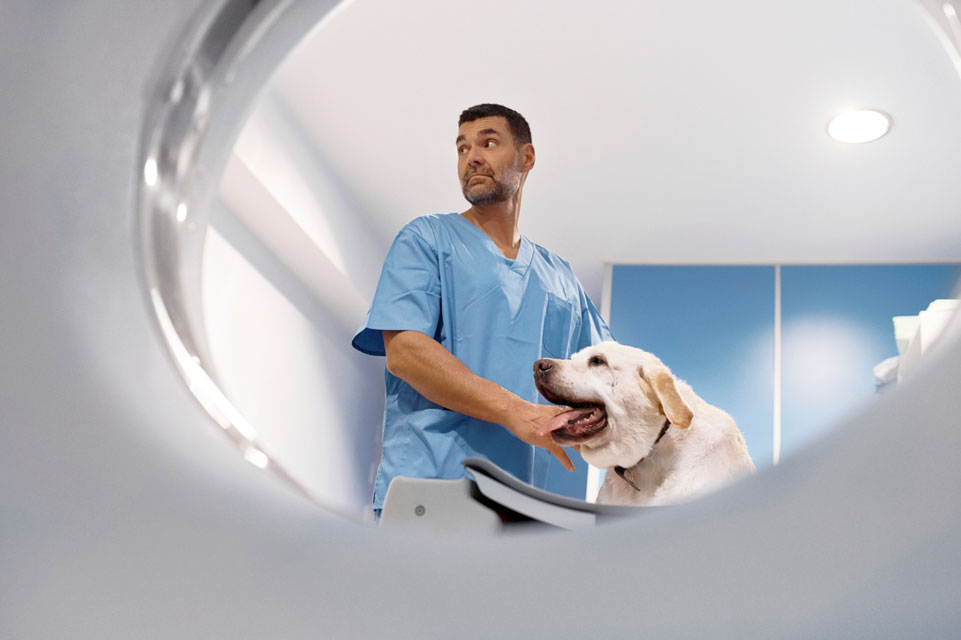CT Scans for Dogs: What Are They and What Information Do They Provide?

A computed tomography, or CT, scan is a diagnostic test where multiple x-rays are taken of an area, and a computer puts them together to create a 3D view, rather than the 2D view provided by plain x-rays. Sometimes the term CAT scan is used, for computed axial tomography.
CT scans produces slices of images, as though the area being evaluated was a loaf of bread and the CT scan produced pieces that can be lifted out, examined from all angles, and replaced. It provides much more detail than a plain x-ray.
When Are CT Scans Necessary for Dogs?
A CT scan might be recommended when a veterinarian suspects a problem that he or she isn't able to visualize well enough with plain x-rays. They are especially useful in evaluating lung conditions and abnormalities of the head and sinuses, but any body part can be examined through CT.
How Are CT Scans Done?
A dog must be under anesthesia when a CT scan is done because they must hold absolutely still for the procedure. Sometimes contrast agent is injected into the dog's veins during a CT scan to enhance the imagery of soft tissues and blood vessels.
The patient is put on a table that is slid through the CT machine, which looks like a donut standing on end. X-rays are taken from multiple angles as the dog's body passes through the machine. A full-body CT scan may be performed, or one body part might be focused on alone.
Once all of the images are gathered, the dog can wake up, and a radiologist can use the computer to manipulate the images and use them to make a diagnosis.
CT Scans Are Done at Referral Hospitals
For the most part, CT scans are done at veterinary colleges or large veterinary referral centers staffed with trained veterinary radiologists. Your veterinarian may refer you there after evaluating your pet and doing initial testing.
You May Also Like These Articles:
Common Blood Tests Done on Dogs
X-Rays in Dogs: What Can They Tell Your Vet?
Fine Needle Aspiration: What Is It and What Does It Tell Your Vet?
4 Tips to Avoid Getting Intestinal Parasites from Your Dog
Why Do Some Dogs Get Obsessed with Laser Pointers?
Should I Bathe My Dog Regularly?
Disclaimer: This website is not intended to replace professional consultation, diagnosis, or treatment by a licensed veterinarian. If you require any veterinary related advice, contact your veterinarian promptly. Information at DogHealth.com is exclusively of a general reference nature. Do not disregard veterinary advice or delay treatment as a result of accessing information at this site. Just Answer is an external service not affiliated with DogHealth.com.
Notice: Ask-a-Vet is an affiliated service for those who wish to speak with a veterinary professional about their pet's specific condition. Initially, a bot will ask questions to determine the general nature of your concern. Then, you will be transferred to a human. There is a charge for the service if you choose to connect to a veterinarian. Ask-a-Vet is not manned by the staff or owners of DogHealth.com, and the advice given should not delay or replace a visit to your veterinarian.


